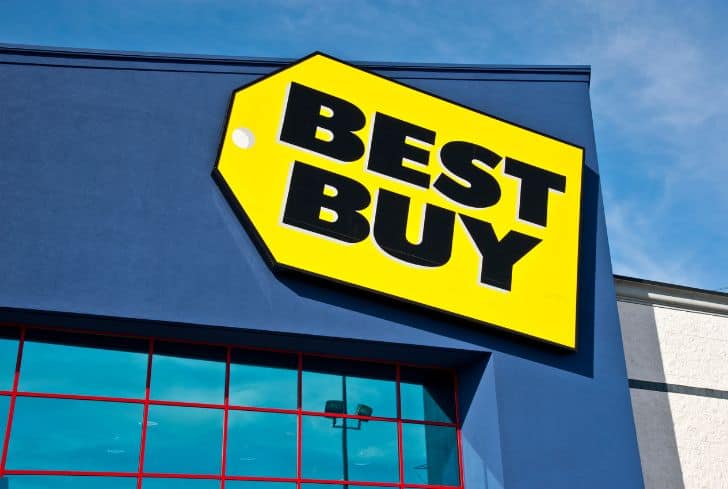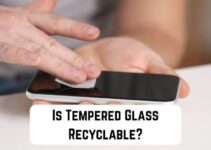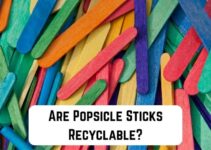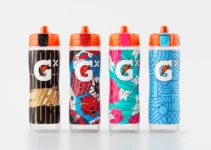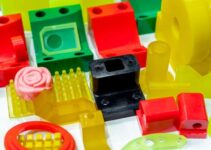Best Buy remains one of the largest electronic retailers around the world. Whether you want a new HDTV, digital camera, or even a laptop, Best Buy is always one of the first places to come to mind.
And for that reason, it’s still among the first retailers to pop up in mind whenever you want to get rid of your old electronics. And thankfully, the retailer has a recycling program in place as part of their bid to reduce e-waste. But how far does their recycling program go? Does Best Buy recycle batteries?
Well, this coverage covers everything you need to know about Best Buy’s battery recycling policies, including whether or not they recycle different types of batteries. Read on to discover more!
Does Best Buy Accept Batteries For Recycling?
Yes, Best Buy does accept batteries for recycling. Best Buy stores welcome all types of batteries, including lead-acid, nickel-cadmium, nickel-metal-hydride, and lithium-ion batteries for recycling. What’s more, recycling your old battery at Best Buy is entirely free of charge. So, if you’ve got an old battery you want to get rid of, Best Buy is one of the best places to take it.
Plastic bags seemingly get all the bad press when we talk about environmental degradation. However, what most people don’t understand is that e-waste is another significant threat to the environment. According to the United Nations, an estimated 50 million metric tons of e-waste is thrown away each year.
E-waste includes anything with a plug or batteries, such as old computers, laptops, printers, and even phones. And what’s even more alarming is that we expect this number to rise in future years.
So, if you’re looking for ways to reduce your e-waste footprint, recycling your old batteries is a great place to start. And as one of the largest electronic retailers in the world, Best Buy is definitely doing its part to help reduce e-waste.
Best Buy recycles various things, and batteries are just one of them. But before you go recycling anything on Best Buy, familiarize yourself with their recycling policies first to know what they have in place.
For starters, Best Buy only allows recycling up to three items per day per household. Some things like TV and monitors are only allowed two per day. So, if you’re looking to recycle multiple items, you might have to make more than one trip to your local Best Buy store.
What Recyclables Does Best Buy Accept?
Best Buy accepts a wide range of recyclables, from plastic bags to all kinds of used techs like TVs, computers, tablets, robot vacuum cleaners, appliances, cameras, cellphones, and video games and gadgets. And yes, it doesn’t matter where you bought the product originally – Best Buy will recycle it for you.
Since 2009, Best Buy has recycled over two billion pounds of e-waste. In 2021 alone, the company managed to recycle 192 billion pounds of e-waste. That’s a lot of e-waste, and it’s a testament to the company’s commitment to reducing environmental degradation.
At Best Buy, their recycling programs are kind of all-inclusive. I mean, you can pretty much recycle anything that has a plug or batteries. However, there are some limitations that you need to be aware of.
The first and foremost thing we’ve already mentioned is that you’re only allowed to recycle three items per day per household. And some items, like TVs and monitors, are limited to two items per day.
Secondly, you may need to pay for some items to be recycled. For example, recycling a TV or monitor will cost you $25. But recycling doesn’t apply everywhere. For instance, some places like California have local restrictions against charging for recycling. So, Best Buy won’t recycle your TV or monitor if you’re from here.
If you have large items or devices, you can always take advantage of the Haul-Away service that Best Buy offers. The service allows you to have your old appliance picked up from your home and then taken away to be recycled. This service is only available for select items and will cost you $199.99.
You can also take advantage of Best Buy’s trade-in program for items that still have value. This program offers you a gift card that you can use towards the purchase of a new thing. Using this calculator on Best Buy’s website, you can check your product’s worth.
Lastly, Best Buy stores don’t all accept the same items for recycling due to different regulations. So, it’s always best to call your local store and ask about their specific recycling policies. That way, you can avoid making a trip for nothing.
Does Best Buy Recycle Lithium Batteries?
Yes, Best Buy does recycle lithium batteries. Lithium batteries are commonly used in electronic devices, such as laptops, cell phones, and digital cameras. You can recycle these types of batteries at all Best Buy locations.
We all know that improper disposal of lithium batteries can harm the environment. They can leak chemicals and pollutants that can contaminate soil and water sources.
So, by recycling your lithium batteries at Best Buy, you’re helping to reduce environmental degradation. And that’s always a good thing. To recycle your lithium batteries, bring them to your local Best Buy store and drop them off at the store.
Does Best Buy Recycle Alkaline Batteries?
Yes, Best Buy does recycle alkaline batteries. Alkaline batteries are the most common type, and you’ll find them in many household items, such as remote controls, smoke detectors, and flashlights.
These batteries can be recycled at all Best Buy locations. As with lithium batteries, improper disposal of alkaline batteries can also harm the environment. So, if you’ve got any old alkaline batteries, recycle them at your local Best Buy store.
The recycling procedure is much the same as for lithium batteries. Bring them to the store and drop them off at the designated recycling bin.
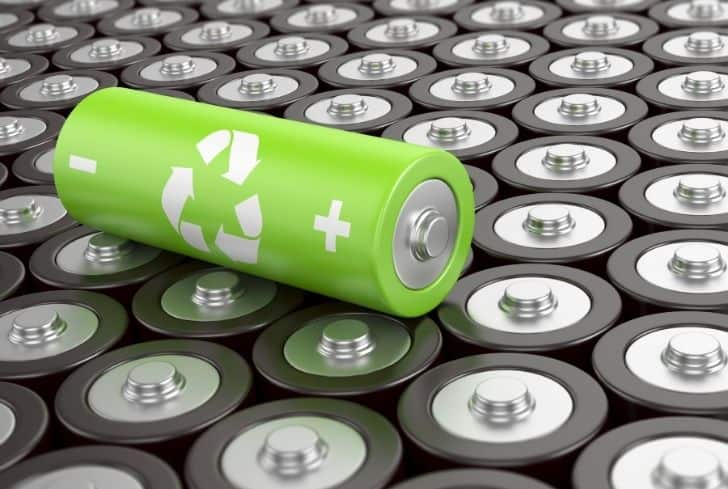
Does Best Buy Take Swollen Batteries?
Sure, Best Buy takes swollen batteries. Swollen batteries are usually caused by overcharging or Hotter climates and can be a safety hazard. But if you have a swollen battery, don’t worry. The retailer accepts nearly all types of batteries for recycling in almost any condition – including swollen batteries!
Swollen batteries are a real danger to have in your device. They can cause troubles like explosions, fires, and even poison gas leaks. And yes, they aren’t any friendlier to your devices. So, it’s always best to get rid of them as soon as possible.
And with recycling being the obvious choice, it makes sense to want to know whether your target retailer accepts them or not. And fortunately, Best Buy, the world’s largest consumer electronics retailer, does!
Does Best Buy Wipe Hard Drives Before Recycling?
Yes, Best Buy does wipe data from hard drives, laptops, and other devices that may contain sensitive information before recycling them. Best Buy has a strict policy when it comes to handling customer data and destroys all customer data before they send off any device for recycling.
But if possible, wipe your data before you drop off your device for recycling.
With cases of theft and fraud on the rise, it’s more important than ever to ensure that your data is safe and secure. And one of the best ways to do that is to wipe your data before recycling your device. Best Buy goes to the extent of doing that for you.
You see, before this retailer sends any possible data-containing item to the contracted partners, it makes sure to have the data destroyed. This policy applies to laptops, desktops, tablets, and other gadgets that may carry your information.
Of course, the onus is still on you to wipe your data before taking your device to Best Buy. In fact, the retailer highly recommends that you do so. They even provide the procedure to wipe data from a hard drive. But in case you forget or can’t do it for some reason, you can rest assured knowing that your data will be safe.
Is It Dangerous To Throw Away Batteries?
Yes, throwing away batteries can be dangerous. Batteries contain harmful chemicals that they can release into the environment if not disposed of properly. Improperly disposed batteries can also cause fires in waste management facilities.
According to an Environmental Protection Agency (EPA) report, there were 245 fires across 64 waste management facilities caused by lithium-ion batteries. Those are just a few instances reported and captured by the news. We still have no idea how many more such fires happen every year.
But fires aren’t the only threat – batteries can also cause severe health effects. Lead and Cadmium, two of the most common battery chemicals, are neurotoxins. They can cause serious health problems like brain damage, kidney damage, and even cancer. And when released into the environment, they can contaminate the ground and water supplies.
So, there really is a danger in throwing away batteries – be it lithium-ion, nickel-cadmium, lead-acid, or alkaline. They can cause all sorts of problems, from fires to poisoning, if not disposed of properly.
How Do You Dispose of Rechargeable Batteries?
The best way to dispose of rechargeable batteries is to recycle them. Recycling rechargeable batteries eliminates any potential danger they may pose to the environment or human health. And it also conserves resources as recycling rechargeable batteries can result in the production of new batteries.
There are many battery recycling programs available. And most of them are pretty easy to use. Find a local battery recycling drop-off point. Most of the world’s largest retailers have recycling arrangements in place. That includes Home Depot, Lowe’s, Staples, and of course, Best Buy.
You can also check with your local waste management facility to see if they offer battery recycling services. Recycling centers usually have a designated area for battery drop-offs. That way, the batteries can be properly disposed of and recycled.
Final Verdict
Batteries can be a real source of danger when mishandled. These essential devices powering our gadgets can cause all sorts of problems if not treated with care, right from the time of purchase to their disposal.
As a rule of thumb, always buy batteries from a reputable source. And when it comes to disposing of them, make sure to recycle them. It’s the best way to ensure that they don’t cause any harm to the environment or human health.
